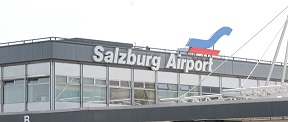https://recyclinginternational.com
‘Sometime soon there will be no export markets for plastics,’ warns e-scrap plastics expert Craig Thompson.
It will be two years this December since China implemented its ban on ‘solid waste’ into mainland China. The industry has had the past 18 months to implement changes to recover at home their own plastic waste and other material that does not have a local recycling solution.
Unfortunately, as recent news articles from Malaysia have shown, the industry is still exporting large volumes of unwanted solid wastes, including plastics from packaging, milk cartons, e-scrap plastics, PVC cable crumb and other granulated residue.
A commercial issue
We have all seen pictures showing HDPE milk cartons with the container door marked ‘Australia’. As most of us know, HDPE milk bottles are fully recyclable in the country they were produced, especially in Europe. Exporting these materials to Malaysia is solely a commercial issue.
Poor sortation
Plastics are recyclable; the technology exists and there are many recyclers throughout Europe and beyond who have invested in solutions to recycle their own plastics. However, there is still a severe lack of investment, lack of capacity and poor sortation at the point the material becomes waste. Poor and broken regulation undermines the legitimate recycler who cannot afford to invest in new technology to process plastics.
At some point – next week, next month, next year – there will no longer be export markets for plastics or other solid wastes. The solution is neither landfill nor incineration of recyclables in local markets. It’s not ethical and, anyway, there isn’t the capacity.
Tied up in bureaucracy
Recently, in an interview with Recycling International, I called for the reset button to be pushed, restarting the industry, regulations, investment and local processing. It would appear that the reset button has indeed been pressed but it is stuck, tied up in complex regulation and bureaucracy over who pays for investment and in-country recycling. In the meantime, we keep exporting to Malaysia and other developing countries, such as India and Turkey, which have poor internal infrastructure for recycling.
For certain, on the 1 January 2021, changes to the Basel coding will stop all plastics and other solid wastes being exported to non-OECD countries. That includes Malaysia and other South Asia countries as well as Dubai, which has recently cropped up on the radar as a place to send e-scrap plastics for recycling.
Good planning is crucial
As an industry, we really must press the reset button and press it firmly. Malaysia and other South Asia markets will close with 1 January 2021 marked firmly in the diary. It may happen earlier. Investment, planning, building space, permitting, contracts and processing equipment all take time to arrange.
Realistically, as it will take at least 12 months to have everything in place, you only have until this August to start the process. That leaves just four months after that until the January 2021 ban on exports to non-OECD countries.
 Amir Seifizadeh Personal Website
Amir Seifizadeh Personal Website

